| |
Autism
AKA: "The Spectrum"
AKA: Asperger's Syndrome
*
Introduction: I am autistic.
| My son has autism, and although I have never been
officially diagnosed, I believe I have it as well.
There has always been something different about me. My parents
recognized it when I was eight years old and had the school do some
testing on me. (I remember the testing, but nobody told me why I
was going through that battery of tests). I didn't mind being
pulled from the humdrum of regular classroom life to do these inane
tasks that they were asking me to do, because it was a change of scenery
and I got to meet new people and escape boring class work for a
while. But, I always wondered. It wasn't 'till 45 years
later that I realized, it was because I'm autistic, too!
The tests all came back that I was a "normal" child.
But, you see, schools are not allowed to diagnose. They are only
allowed to determine if there is a learning deficit, which may require
intervention. It was determined by the school that I did not
require intervention.
But, even if I had gone to a doctor, it is unlikely that the doctor
would have caught it either, because back then (in the 70's), doctors
probably didn't know how to diagnose "high-functioning"
autism.
My son was the precipitant for me to recognize the autism in
myself. When my son was diagnosed, I began to notice that he had
many of the same quirks that I had. It got me to thinking,
"Is that why I have always been different from those around
me? Am I autistic, too?"
Luckily, being autistic myself, I was able to help my son cope with
many of the challenges that he would face, and still faces. |
*
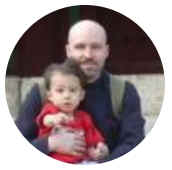
My son and I.
Autism FAQs
| Question |
Answer |
| What is the
difference between autism, 'the spectrum', and Asperger's Syndrome? |
Nothing. They are all but
different labels for the same thing.
It is called Asperger's Syndrome, because it was first recognized and
diagnosed by Dr. Hans Asperger in 1944.1
It is called "the spectrum" because it is a HUGE spectrum,
ranging from severe autism ("Rainman"), to mild autism, to
'high-functioning' autism. |
| What are the
symptoms of autism? |
Keep in mind that autism is
different for each and every child.
I have taught elementary for 25 years and besides having a child of
my own with autism, I have taught many diagnosed autistic children.
Some common characteristics of autism can be...
- Tendency to not look others in the eyes (but this is not
always true), and can be overcome with training
- Inability to express emotions the way that others do.
This is not because they don't have emotions. THEY DO! And,
they have very deep emotions; they just don't express them outwardly in
socially acceptable ways. They don't weep, (at least not often);
but they do express anger.
- Lack of a sense of time. (I noticed this one in all of
my dealings with autistic persons).
- Can be obsessive about certain things. Usually, this
comes in the form of being obsessive about rules. Autistic
children tend to have a biological imperative to point out when others
are not following the rules.
- Inability to pick up on social cues; and don't use social
cues themselves.
- Can be socially awkward; and this only because they don't
have 'filters'; they say what they mean and they are direct. They
don't beat around the bush.
- Others. |
| How can I know if
my child (or I) am on "the spectrum"? |
Only a licensed physician can
officially diagnose it. |
| How can I cope
(or teach my child to cope)? |
DISCLAIMER:
I am not a licensed physician, and my suggestions are not to replace the
qualified, professional advise of one's physician. These are just
ways that I am my son have coped. If they seem to help,
great. If they don't, discard them and seek professional advice.
NOTE: There is a whole list in Carley's book: Asperger's
from the Inside Out, and these are all in there; but I chose these
because these are BIGGIES in my own life and the life of those I know
who have autism.
(1) Looking one in eyes
This can be trained. I trained myself. When I was young, I
had a natural aversion to looking people in the eyes. My parents
would always say, "Look at me when I'm talking to you."
(And that helped), but I basically trained myself to look people in the
eyes. I cannot explain why we autistic people have that
aversion. I think it has something to do with it being too
personal. Looking at another person's eyes and having them look
into our eyes is a very intimate thing for us autistic persons. We
don't give that privilege away to just anybody. Consider yourself
special if an autistic person will look you straight in the eyes.
(2) Expressing emotions
As a child, I seldom expressed my emotions. Even when I as elated,
I didn't jump up and down and get all excited on the outside, but I was
elated on the inside. As a teacher, I learned that I need to show
my students and/or tell my students how I was feeling.
For my child, I had to teach him how to handle his emotions in
socially acceptable ways. This is a forever on-going process that
gets better and easier as time passes.
(3) Sense of Time
My son copes with this deficiency by using a watch/clock and using
timers whenever possible. (I do the same).
(4) Obsessive behavior
I'm 'OCD' about order and cleanliness. Clutter is okay, as long as
it is organized and labeled and I know where everything is. I hate
not knowing where I put stuff. My son gets obsessive about various
things. Sometimes the obsession passes. Sometimes it
doesn't. It was important to constantly reassure my son that
things will be okay if something obsessed about doesn't happen or
doesn't happen the way that we want it too or expect it to. (My
mom did the same with me).
(5) Social cues
Every single social cue has to be taught. My son may choose not to
use them, but at least he has been taught to recognize them when they he
sees them. Basically, I had to teach my son how to handle each and
every situation (and I'm still doing that; and I'm still learning
myself).
(6) Being too direct
"Beating around the bush" is a fine art. It can be
taught, but generally speaking, we autistic people look at it as a waste
of time. We've got more important things to do. BUT, when it
comes to preserving people's feelings, we can learn to "beat around
the bush". |
| Are there any
organizations that can help (after diagnosis from a licensed
professional)? |
DEAR PARENTS:
As a licensed teacher (with 25 years of experience) I can tell you
that the first thing you are going to want to do for your autistic child
is go to the doctor that diagnosed the condition and get a note from the
doctor stating the diagnosis and requesting services from the
school. I don't know about other countries, but in the U.S., upon
receiving said document, the school must, by law, provide immediate
services. Get over any stigma you might feel. By HIPPA laws
and FERPA laws, your child's condition must remain a secret. That
means the school will know, and your child's teacher will know, but
nobody else is allowed to know (unless you tell them or your child tells
them). What you get is amazing support from the school
professionals. As a teacher, I was able to secretly put into place
certain accommodations for each child with special needs.
ORGANIZATIONS:
NOTE:
Don't see one that you know of? Contact
me. |
| Aren't autistic people supposed
to be endowed with special savant powers, like "Rainman" was
really good at math? |
Yes! and No.
No, very few autistic persons at actually good at math. Some
may be. I don't know any, except Kim Peek (the person on whom
"Rainman" was based).
But, they excel at something!
My son has a very good eye and an astounding attention to detail that
would make any quality assurance employee marvel. |
Footnotes (Sources)
1. Carley, M.J., 2008. Asperger's from the Inside
Out, Penguin Books, Ltd.
Like I, Michael John Carley discovered that he was autistic when
he was an adult. He, along with some other autistics, started GRASP
(Global and Regional Asperger Syndrome Partnership) in 2003. GRASP is a
non-profit 501(c)3. This is from their website's "about" (history)
page.
| In order to support our peers at the individual level, GRASP provides assistance by offering autism assessments, neurodivergent coaching, free information and referral services, and virtual supports. At the larger level, we also offer educational workshops and programs to schools, post-secondary organizations, and companies. |
In 2008, Michael Carley published a book, Asperger's from the
Inside Out. It is like a handbook for autistic people. (But, can
be used as a guidebook for parents as well).
| |

English |
|

Spanish
|

Korean |

Mongolian |

Chinese |
|
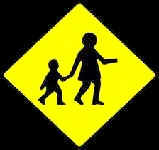
Parents of
Homeschool
|
|

Halloween
|
|

Thanksgiving
|
|

Winter Solstice
|
|

Christmas
|
|

New Years
|
|

Chinese Lunar
New Year
|
|

Valentine's
|
|

|
|
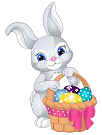
Easter
|
|

All About
Dr. Seuss
|
|
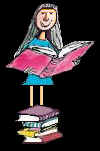
Roald Dahl
|
|
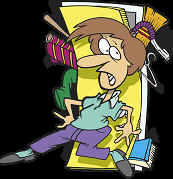
Prepper's
Pen |
|

Ways to
Help
Leon's Planet
|
|